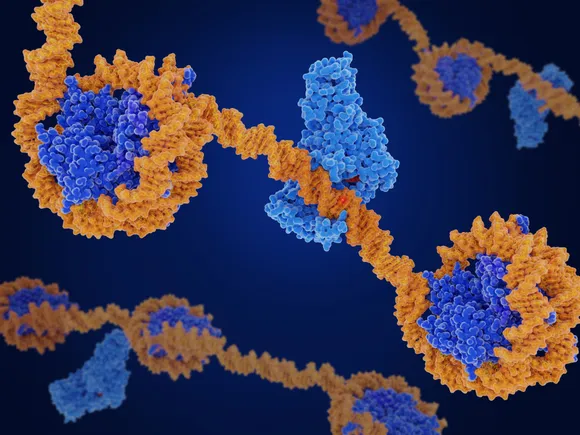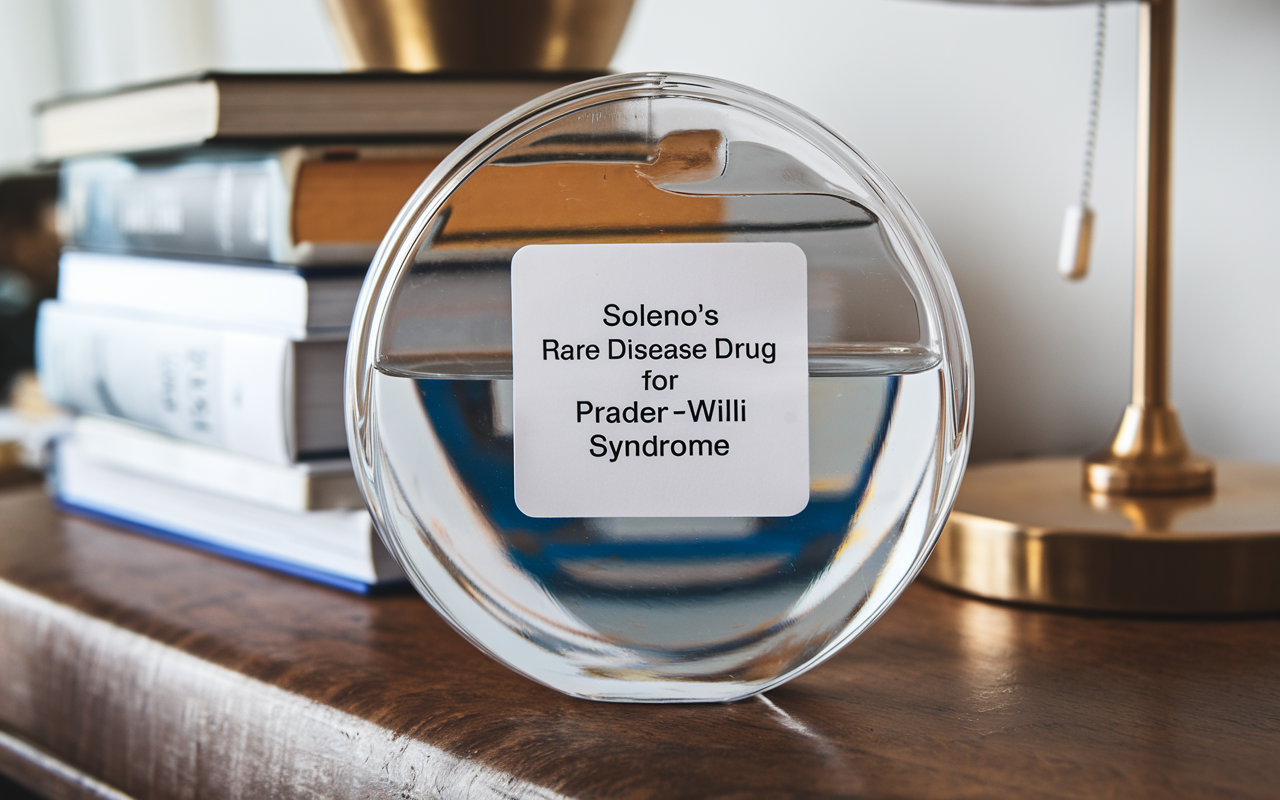Welcome, BioPharmaPulse Readers! 👋
Greetings, everyone! In this issue, we're diving into groundbreaking innovations and pivotal advancements shaping the biopharmaceutical landscape. Let's embark on this educational journey together to explore the transformative potential of these developments.
What's in this issue:
- 🔬 Discover how epigenetic editing is paving the way for rare disease treatments.
- 🧪 Learn about the FDA's approval of a life-changing therapy for Prader-Willi syndrome.
- 🌐 Explore Johnson & Johnson's new era in lung cancer therapy with promising survival data.
- 🧭 Stay ahead with the latest industry insights and emerging trends.
Inspiration of the Day 💡
"Science knows no country, because knowledge belongs to humanity, and is the torch which illuminates the world." — Louis Pasteur
Latest Developments in Biopharma
🧬 Epicrispr Banks $68M to Test Epigenetic Editing on Rare Muscle Disease (3-minute read)

Rundown: Epicrispr Biotechnologies has raised $68 million to advance a pioneering gene-editing therapy for facioscapulohumeral muscular dystrophy (FSHD), a rare neuromuscular disorder affecting nearly 870,000 people worldwide. Their lead program, EPI-321, employs CRISPR technology to epigenetically modify the overactive DUX4 gene, aiming to halt the progressive muscle degeneration characteristic of FSHD.
Key Points:
- 🧪 Innovative Approach: Utilizes epigenetic editing rather than cutting DNA, potentially reducing risks associated with traditional gene-editing methods.
- 🎯 Targeting DUX4: Focuses on suppressing the harmful expression of the DUX4 gene implicated in FSHD.
- 🚀 Clinical Trials Ahead: Plans to initiate a Phase 1 trial in New Zealand this year.
- 🌍 Broad Pipeline: Exploring treatments for other genetic disorders, including familial hypercholesterolemia and eye diseases.
Why it Matters: This breakthrough represents a significant stride in gene therapy, offering hope for patients with FSHD who currently have limited treatment options. By tackling the root cause at the epigenetic level, Epicrispr's approach could pave the way for safer and more effective therapies for a range of genetic diseases.
🩺 FDA Approves Soleno’s Rare Disease Drug for Prader-Willi Syndrome (1-minute read)

Rundown: The FDA has approved Soleno Therapeutics' Vydaze XR, the first medication designed to alleviate the insatiable hunger caused by Prader-Willi syndrome (PWS). Affecting 10,000–20,000 individuals in the U.S., PWS leads to chronic overeating and obesity-related complications. This approval marks a pivotal moment in providing a therapeutic option for managing this challenging aspect of the disorder.
Key Points:
- 🎉 First of Its Kind: Vydaze XR is the first FDA-approved treatment targeting hyperphagia in PWS.
- 🔬 Clinical Success: Demonstrated significant reduction in hunger and improvement in related behaviors.
- 🧒 Broad Approval: Cleared for use in both adults and children aged four and older.
- 🌟 Patient Impact: Offers a new horizon of hope for patients and families dealing with PWS.
Why it Matters: This approval addresses a critical unmet medical need, offering a tangible improvement in quality of life for patients with PWS. It also exemplifies the potential for dedicated research to yield life-changing therapies for rare diseases.
💉 J&J Combo Signals New Era in EGFR Lung Cancer with Survival Win Against AstraZeneca’s Tagrisso (6-minute read)

Rundown: Johnson & Johnson's combination therapy of Rybrevant and lazertinib has shown a 25% reduction in the risk of death for patients with EGFR-mutated non-small cell lung cancer, outperforming AstraZeneca’s Tagrisso in the Phase 3 MARIPOSA trial. This marks a significant advancement in first-line treatment options, potentially establishing a new standard of care.
Key Points:
- 🌐 Survival Benefit: Demonstrated improved overall survival rates compared to the current standard therapy.
- 🧬 Innovative Combination: Utilizes a bispecific antibody targeting EGFR and MET pathways alongside a third-generation EGFR inhibitor.
- 🩺 Patient Outcomes: Showed consistent benefits across diverse patient subgroups, including those with brain metastases.
- 🔄 Next Steps: J&J is preparing for regulatory submissions and exploring mitigation strategies for side effects.
Why it Matters: With lung cancer being a leading cause of cancer deaths worldwide, this development offers renewed hope for improved patient outcomes. The combination therapy could revolutionize treatment protocols, providing a more effective option for those battling this challenging disease.
Question of the Day ❓
🤔 What emerging area in biopharmaceutical innovation excites you the most?
- 🧬 Epigenetic Editing Advancements
- 💉 Breakthroughs in Rare Disease Treatments
- 🌐 Novel Cancer Therapies
Trending Now 🔥
🧭 Altis Says Its AI Tool Can Cut Risk in Cancer Trials
- Altis Labs developed an AI model that outperforms conventional methods in predicting overall survival for lung, breast, and colorectal cancer patients using scan data, potentially improving clinical trial design and patient outcomes.
🧪 Nouscom Reveals Promising Results for Lynch Syndrome Immunotherapy
- Nouscom's NOUS-209 shows potential in preventing cancer in patients with Lynch Syndrome, demonstrating safety and robust immune responses in early trials.
🌿 Acrivon Stops Developing Lilly Castoff for Ovarian and Bladder Cancers
- Acrivon Therapeutics shifts focus to endometrial cancer for its lead drug, aiming to maximize therapeutic impact in this specific patient population.
Industry Insight 🧠
🗝️ Unlocking the Potential of Epigenetic Therapies
Epigenetic therapies are emerging as a frontier in treating genetic diseases by modifying gene expression without altering the underlying DNA sequence. This approach offers a promising avenue for conditions where traditional gene editing poses significant risks.
By harnessing epigenetic mechanisms, researchers can potentially silence harmful genes or activate beneficial ones, opening doors to innovative treatments for diseases like FSHD, cancer, and more.
Quick Hits ⚡
🧩 Wave's DMD Drug Remains on Track Ahead of FDA Push Next Year (1-minute read)
- Wave Life Sciences reports positive phase 2 data for its Duchenne muscular dystrophy therapy, setting the stage for regulatory submission in the coming year.
🧠 New Tests for Alzheimer’s and Cancer Get FDA’s ‘Breakthrough’ Status (1-minute read)
- The FDA grants breakthrough designation to innovative diagnostic tools, including AI-powered devices and blood tests for Alzheimer's and cancer, accelerating their path to patients.
🧬 Bayer Gains Cancer Drug from China’s Puhe (2-minute read)
- Bayer expands its oncology pipeline by licensing a novel cancer therapy from China's Suzhou Puhe BioPharma, targeting tumors with specific genetic deletions.
Wrap Up 🎬
Thank you for joining me on this exploration of the latest breakthroughs in biopharmaceutical innovation. It's an exciting time in our industry, with each advancement bringing us closer to transformative therapies for patients worldwide. I encourage you to stay curious, stay informed, and continue to be part of these incredible advancements.
Warm regards,
Elliot Reeves BioPharmaPulse
😊 How did you like today's email?
- 😍 Loved it
- 🙂 It was OK
- 😕 Could be better
